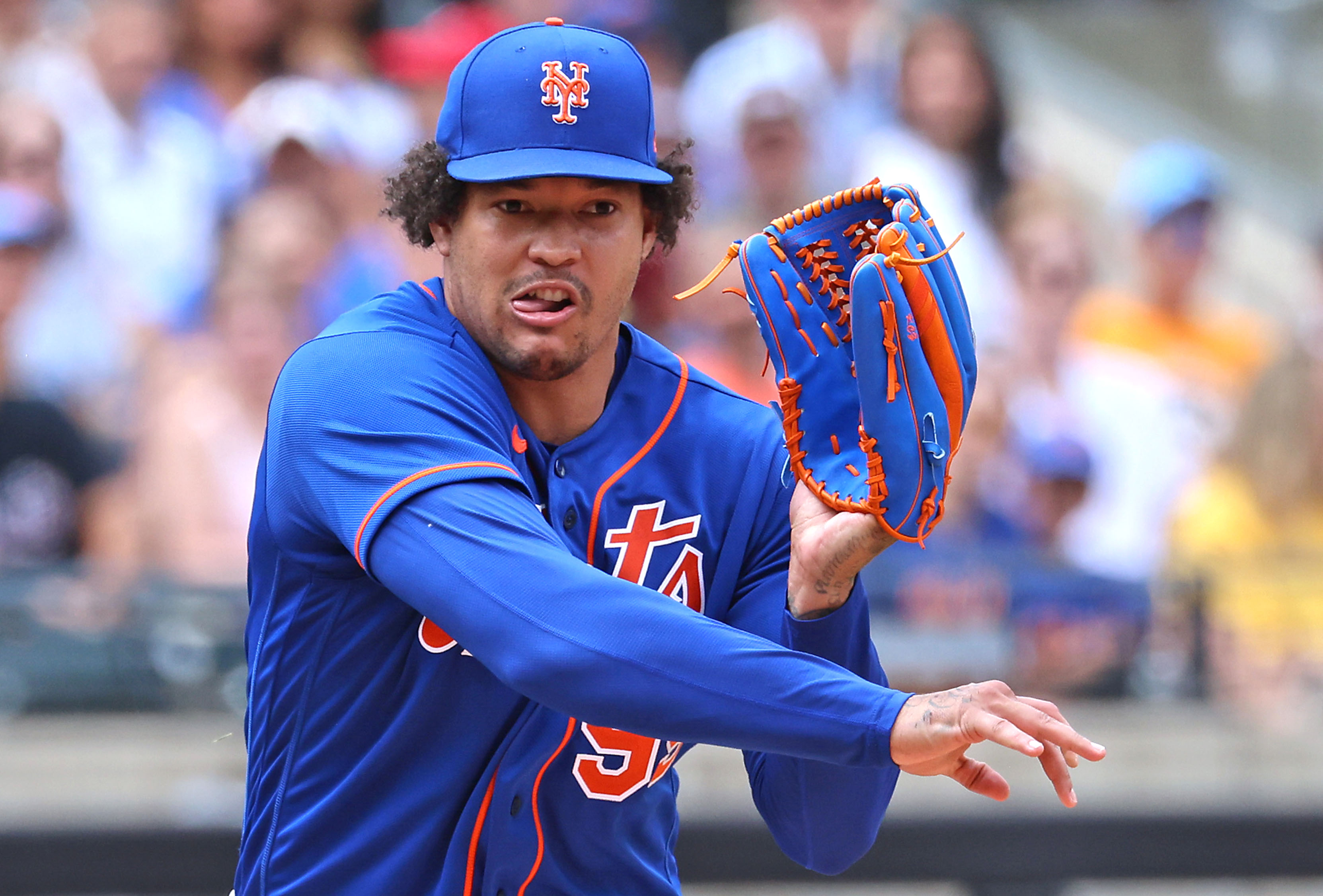FTC Probe Into OpenAI: Implications For The Future Of AI And Data Privacy

Table of Contents
OpenAI's Data Handling Practices Under Scrutiny
The FTC's scrutiny of OpenAI centers heavily on its data handling practices. This examination has far-reaching consequences for the entire AI industry, setting a precedent for how companies should handle sensitive user information in the age of advanced AI.
Concerns Regarding Data Collection and Usage
The FTC is meticulously examining OpenAI's methods for collecting, using, and protecting the vast amounts of user data fed into its models. Several key concerns are driving this investigation:
- Unauthorized Data Collection: The FTC is investigating whether OpenAI's data collection practices exceed the bounds of user consent and existing privacy laws. This includes assessing whether data is collected and used for purposes beyond what users reasonably expect.
- Lack of Transparency: Concerns exist about the opacity surrounding how user data informs AI training. Users need clearer explanations of how their data contributes to AI model development and what safeguards are in place to protect their privacy.
- Compliance with Existing Laws: OpenAI's adherence to existing data privacy regulations like the Children's Online Privacy Protection Act (COPPA) – concerning the data of minors – and the General Data Protection Regulation (GDPR) – for users in the European Union – is under intense scrutiny. Any non-compliance could lead to significant penalties.
- Data Security Measures: The effectiveness of OpenAI's data security measures is a critical aspect of the investigation. The FTC is assessing the company's ability to prevent data breaches and protect user information from unauthorized access or misuse. This includes examining their protocols for identifying and responding to potential vulnerabilities.
Potential Violations of Consumer Protection Laws
Beyond data privacy, the FTC's investigation also explores potential violations of consumer protection laws. This broader lens considers the potential societal impact of OpenAI's technology:
- Deceptive or Unfair Trade Practices: The FTC might investigate whether OpenAI's marketing and data practices are deceptive or unfair, potentially misleading users about how their data is used.
- Bias and Discrimination: The outputs of AI models can reflect biases present in the training data. The FTC is likely examining whether OpenAI's models produce biased or discriminatory results, leading to unfair or harmful outcomes for certain groups of consumers.
- Inaccurate Information: The potential for AI to generate inaccurate or misleading information is another area of concern. The FTC is investigating whether OpenAI has taken sufficient steps to mitigate the risks associated with the dissemination of false or unreliable information generated by its models.
The Broader Implications for AI Regulation
The FTC's investigation into OpenAI has significant implications far beyond the company itself. It shines a spotlight on the urgent need for a clearer regulatory landscape for the burgeoning AI industry.
The Need for Clearer Guidelines and Regulations
The investigation highlights the critical need for specific regulations tailored to the unique challenges posed by AI. Several regulatory approaches are being considered:
- Impact Assessments: Requiring AI developers to conduct thorough impact assessments before deploying new systems to anticipate and mitigate potential risks.
- Auditing Requirements: Establishing independent auditing mechanisms to verify that AI systems comply with relevant regulations and ethical standards.
- Data Governance Frameworks: Creating robust frameworks that establish clear guidelines for the collection, use, and protection of data in AI systems.
- International Harmonization: Promoting international cooperation and collaboration to develop consistent and effective AI regulations globally.
Balancing Innovation with Consumer Protection
Navigating the complex relationship between fostering AI innovation and safeguarding consumer rights and data privacy presents a major challenge.
- Responsible Innovation: Striking the right balance requires a commitment to responsible AI innovation, prioritizing ethical considerations alongside technological advancement.
- Avoiding Stifling Innovation: Overly burdensome regulations could stifle innovation. Finding the right level of regulation is crucial to protect consumers without hindering the progress of this crucial technology.
- Industry Self-Regulation: The effectiveness of industry self-regulation initiatives in promoting responsible AI development will also be evaluated.
The Future of Data Privacy in the Age of AI
The rise of AI presents unprecedented challenges to data privacy, requiring innovative solutions to protect sensitive information.
Challenges in Protecting Data in AI Systems
Protecting data used in AI systems presents significant challenges:
- Data Breach Vulnerability: The large datasets used to train AI models are vulnerable to breaches, potentially exposing sensitive personal information. New security measures must be developed to address this vulnerability.
- Risk Mitigation: Identifying and mitigating the risks associated with data breaches and unauthorized access in complex AI systems requires advanced techniques and robust security protocols.
- Innovative Privacy Technologies: New data privacy technologies, including differential privacy and federated learning, are needed to allow for AI development while minimizing privacy risks.
The Role of Transparency and User Control
Transparency and user control are critical components of responsible AI development:
- Data Usage Transparency: Users need to understand how their data is being used in AI systems and what safeguards are in place to protect their privacy.
- User Data Control: Empowering users with greater control over their data, including the ability to opt out of data collection or access and correct their data, is essential.
- Advanced Privacy Techniques: Exploring and implementing techniques like differential privacy and federated learning can provide strong privacy protections while enabling AI model training.
Conclusion
The FTC's investigation into OpenAI serves as a crucial wake-up call for the entire AI industry. The outcome will undoubtedly shape the future development and regulation of AI, particularly regarding data privacy. The need for robust regulatory frameworks, transparent data handling practices, and an unwavering commitment to ethical AI development are now paramount. To build a future where AI benefits all of humanity while safeguarding sensitive data, we must prioritize responsible innovation and user protection. We must closely monitor the developments in the FTC probe into OpenAI and its impact on the future of AI and data privacy. The future of AI hinges on responsible development and effective regulation.

Featured Posts
-
 Analyzing Pitchers Name S Performance Mets Rotation Contender
Apr 29, 2025
Analyzing Pitchers Name S Performance Mets Rotation Contender
Apr 29, 2025 -
 How U S Companies Are Responding To Tariff Uncertainty A Focus On Cost Reduction
Apr 29, 2025
How U S Companies Are Responding To Tariff Uncertainty A Focus On Cost Reduction
Apr 29, 2025 -
 Key Republican Groups Threaten To Block Trumps Tax Bill
Apr 29, 2025
Key Republican Groups Threaten To Block Trumps Tax Bill
Apr 29, 2025 -
 Anthony Edwards Fined 50 K By Nba Over Vulgar Comment To Fan
Apr 29, 2025
Anthony Edwards Fined 50 K By Nba Over Vulgar Comment To Fan
Apr 29, 2025 -
 Cassidy Hutchinson Jan 6 Hearing Testimony To Become Fall Memoir
Apr 29, 2025
Cassidy Hutchinson Jan 6 Hearing Testimony To Become Fall Memoir
Apr 29, 2025
Latest Posts
-
 The Impact Of Zombie Office Buildings On Chicagos Real Estate Market
Apr 29, 2025
The Impact Of Zombie Office Buildings On Chicagos Real Estate Market
Apr 29, 2025 -
 Key Republican Groups Threaten To Block Trumps Tax Bill
Apr 29, 2025
Key Republican Groups Threaten To Block Trumps Tax Bill
Apr 29, 2025 -
 Zombie Buildings In Chicago Understanding The Office Real Estate Collapse
Apr 29, 2025
Zombie Buildings In Chicago Understanding The Office Real Estate Collapse
Apr 29, 2025 -
 Can Trumps Tax Cuts Survive Internal Republican Opposition
Apr 29, 2025
Can Trumps Tax Cuts Survive Internal Republican Opposition
Apr 29, 2025 -
 Chicagos Office Market Meltdown The Rise Of Zombie Buildings
Apr 29, 2025
Chicagos Office Market Meltdown The Rise Of Zombie Buildings
Apr 29, 2025
